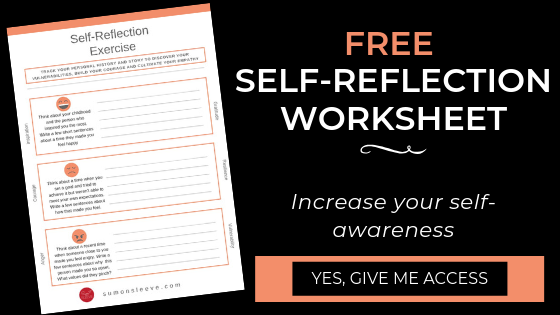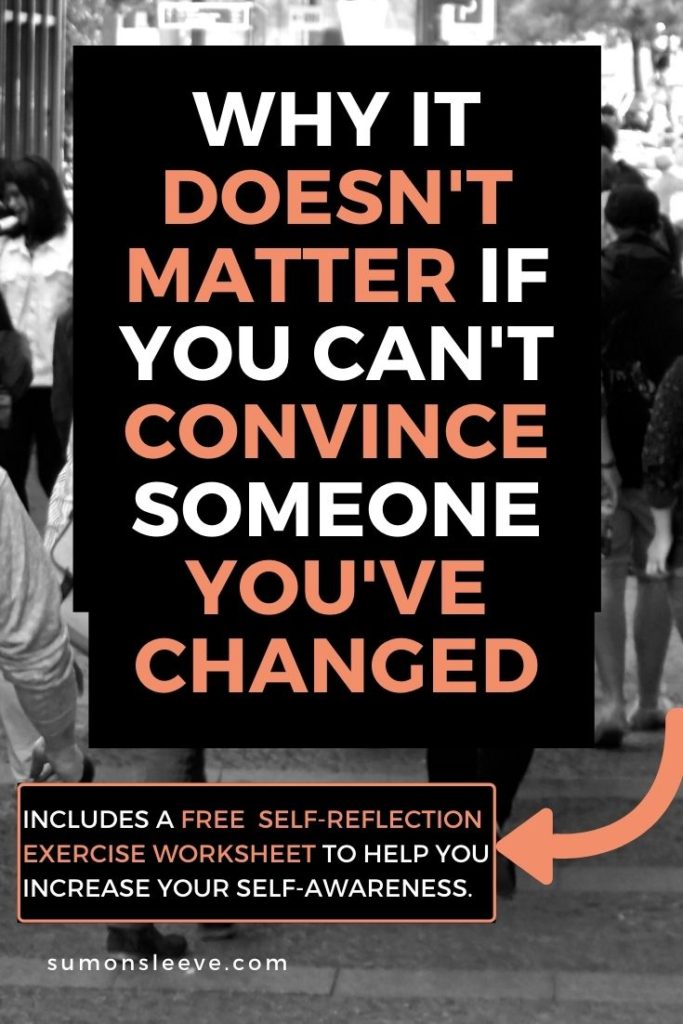When someone doesn't believe you've changed, how does it make you feel? Do you want to prove to them that you have? What if it doesn't matter? Your past is held in their emotional memories.

His New York Trip
Recently, we watched the episode of This Is Us where they share the three times the Pearson family went to New York. As we were watching this, my husband mentions,
“Oh, we need to go back to New York one day.”
It’s been 7 years since that fateful trip and lots have happened, a wedding, a move, and a couple of kids.
I nod and say,
“Oh yeah, maybe in a few years when the kids can stay over at my parents.”
He reminisces,
“I remember I was so glad I brought my snow boots. It was so cold in December. I don’t know how you managed without.”
My New York Trip
I respond flatly,
“I didn’t. I was freaking freezing.”
He turns to me with a look of shock,
“But you didn’t complain one bit. You seemed fine, not cold at all.”
I roll my eyes,
“Dude, we had just started dating and it was our first trip together. I didn’t want to be that girlfriend who complains about being cold because she packed for fashion, instead of weather conditions.”
His jaw drops,
“Are you sure you were cold? I remember it was the thing I loved about you during the trip. You just enjoyed the moment even when we were both freezing at The Jets game. We huddled in the stadium and stayed warm together, sharing that massive hot cup of coffee.”
I scoff,
“Yeah, no. I was so cold. It was brutal and I hate football. This time, if we go in December again, I’m bringing all my winter gear. Screw trying to look good in pictures.”
He’s still surprised,
“I really don’t think you were that cold.”
I was starting to get annoyed,
“No, I was young and naive. I cared so much about what you thought that I didn’t voice my concerns. I was different back then. I’ve changed now, much more self-assured. If it was me now during that trip, I’d be bitching and complaining and I would have bought a pair of snow boots at the first store I saw. I have no tolerance for discomfort, especially being cold.”
He looks back at the TV, side-eyes me and with a muffled voice, he says,
“I don’t think you’d complain now. You’d be fine. You’re tough. You gave birth to our kids. You have a high pain tolerance.”
I snap,
“No, I’ve changed. I’m different now!”
He retorts,
“Sure you have.”
At that moment, I could feel my blood boiling. I start thinking of examples when I complained about being cold, moments when I spoke up, times where I demonstrated my low pain tolerance, bringing too many jackets or wearing a sweater in the summer.
I wanted anecdotal evidence I knew he would remember so that I could prove to him that I had changed. I wanted to convince him that I was no longer that 27-year-old, doe-eyed, agreeable girlfriend who would put up a front just to leave a good impression.
Then I stop.
Why is he holding onto a version of myself that isn’t true anymore?
Because he wants to cherish that moment as he experienced it. Although we share the same New York trip, my husband’s memory of me is his to keep. I am in his memories as he is in mine; however, those memories can be drastically different depending on how the experience made us feel.
Our memories are tied to our emotions
According to a study published in Nature Neuroscience(2016), when we experience an emotion, our amygdala is stimulated and adrenaline is released into our bodies. These processes activate the hippocampus which is responsible for memory function, sharpening our memories during that moment.
How we process how the other made us feel is unique to the individual which determines how memories are formed. Although my husband and I share a past, it exists as two parallel paths, creating separate memories as it moves forward with a different lens and context. I will remember how he made me feel and he will remember how I made him feel.
Sometimes, we cannot change someone’s mind about us
Will parents always see their kids as children?
Will older siblings always see their younger sibling as their younger sibling, always inferior, eternally immature?
When relationships end, does each party view the other person in the way it ended forever?
When people move away, leave jobs, change careers…are their identities stuck in wherever they left it?
In the relationships we have with others, we can communicate with as much empathy as we can, expressing what is true to us, exactly how we remembered it or how we’ve changed; however, if the person has preconceived notions about us, they may not want to believe our truth because they don’t want to tarnish how they felt about us as it holds true to them.
Sometimes, we cannot change someone’s mind about us and it doesn’t really matter if we do. We cannot control the emotions that were felt when they were with us; therefore, we cannot control their memories of us. How they view us in the past is within their construct and control, not ours.
Can people grow?
Can people change?
Yes and yes. But we cannot change or control how others think and feel about us. It is not our job to convince them that we have; however, it is our job to prove to ourselves that we have.
I know I am no longer that people-pleasing 27-year-old, that I’ve grown to be much more self-assured and confident. And through the years of our marriage, I know my husband knows that too.
So I take a moment to reflect back on our New York trip, reminiscing about what I loved about it. I turn to him and say,
“When we go back, we should walk across the Brooklyn Bridge again.”





